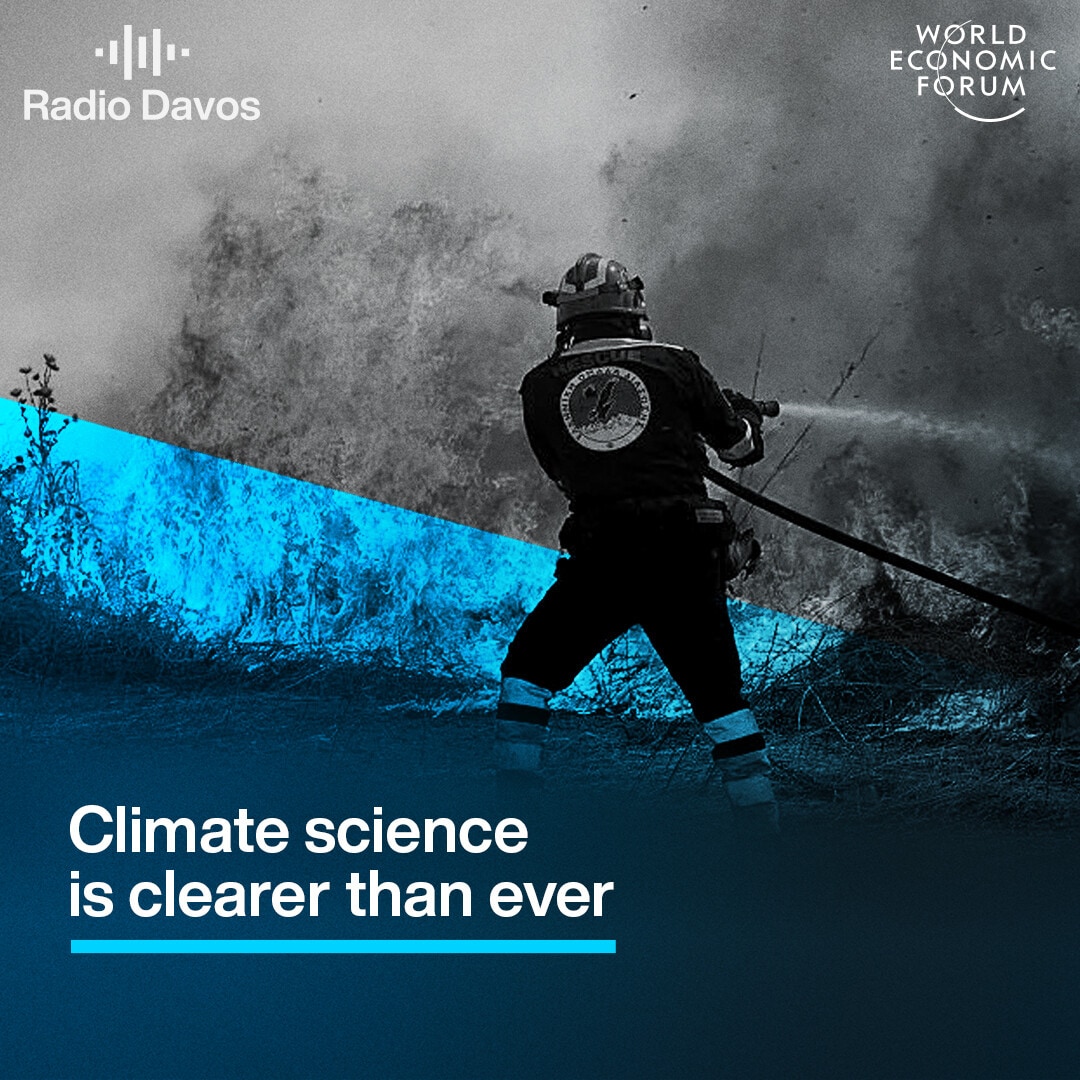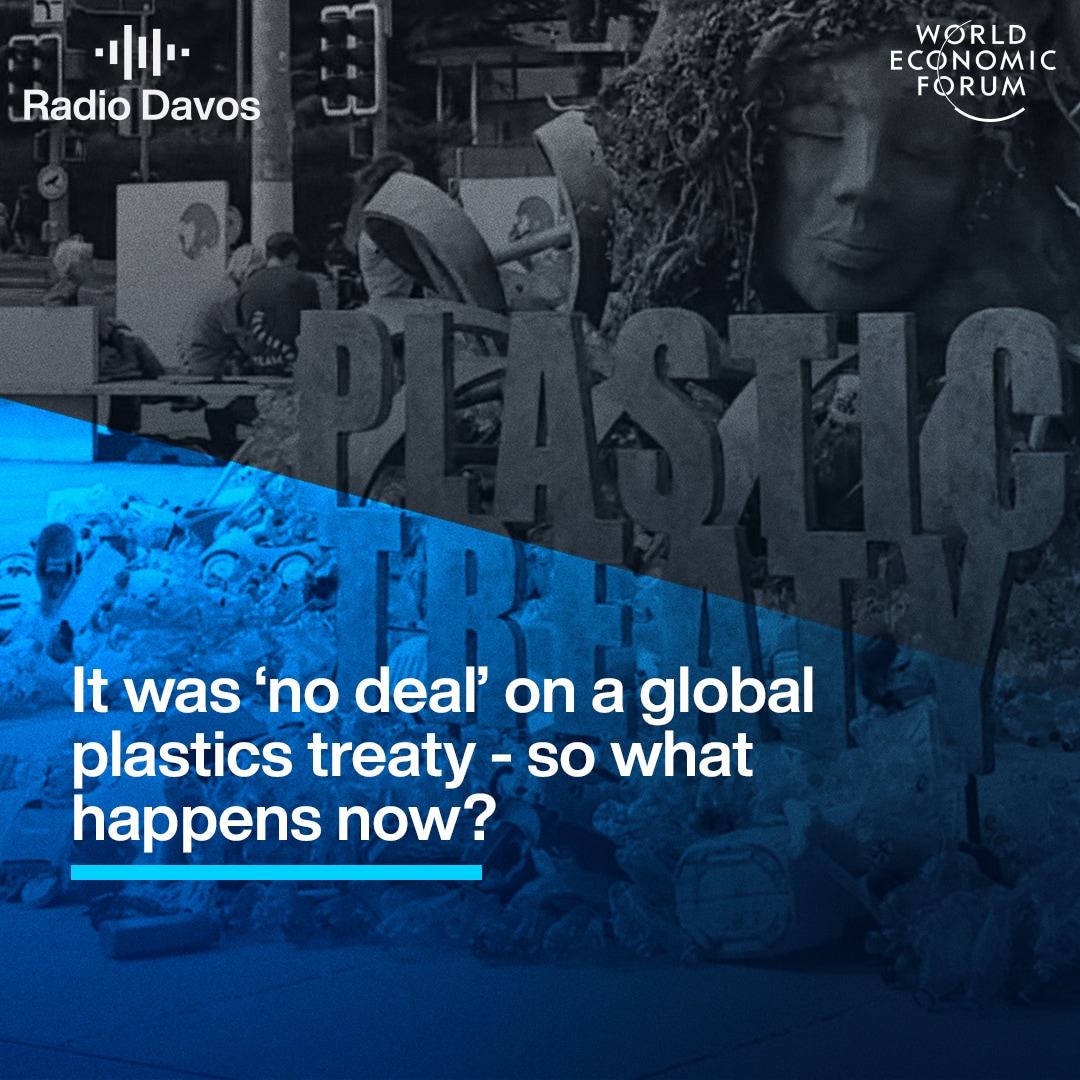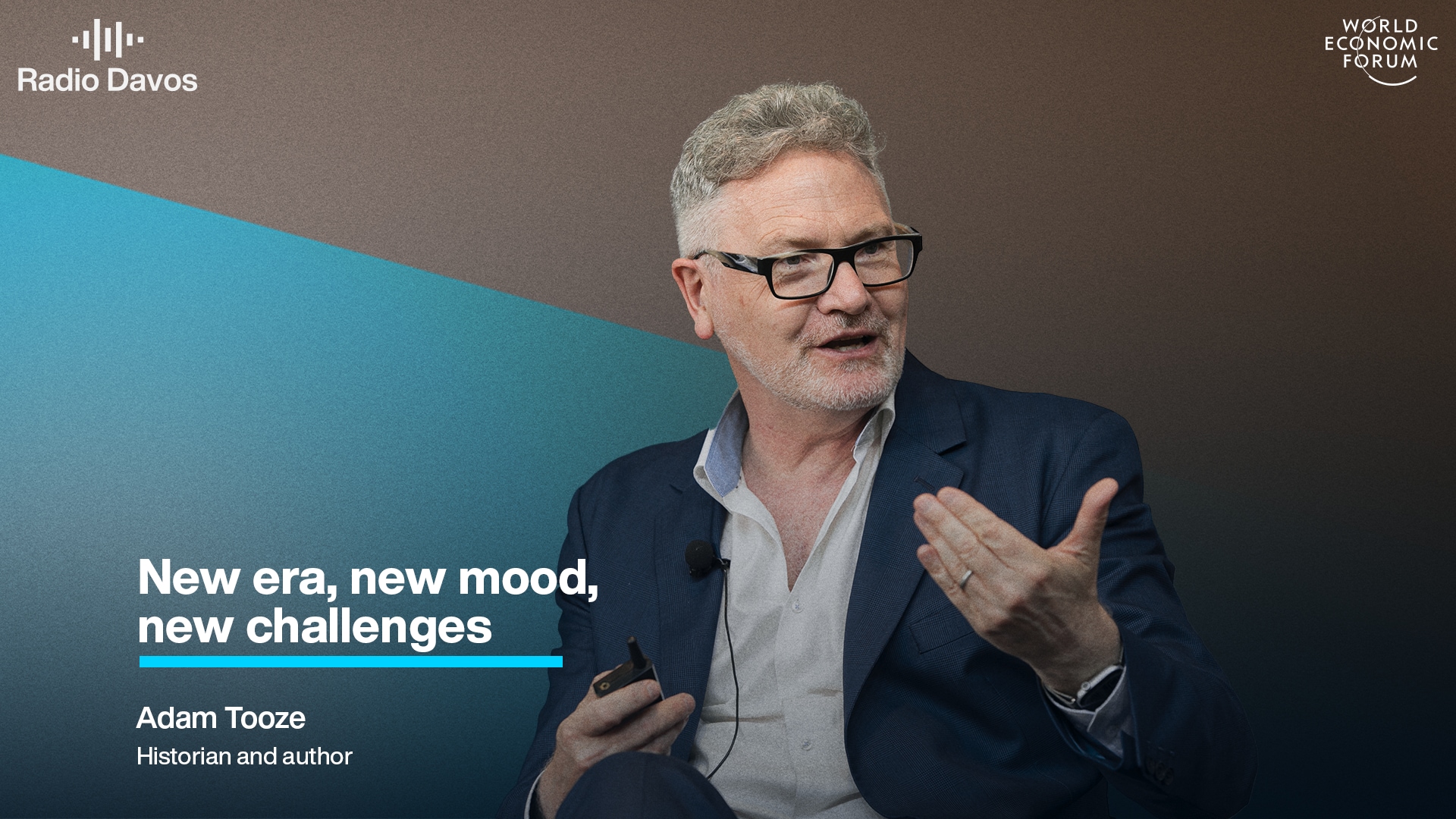Radio Davos
It was ‘no deal’ on a global plastics treaty - so what happens now?
A second - and supposedly final - final round of talks to agree a global treaty to tackle plastics pollution this month ended with no deal. We get a readout of the talks from Clemence Schmid, director of the Global Plastics Action Partnership, who tells us what happened and what might happen next.
Start listening
26 mins
Featured episodes:
The world's biggest challenges - from climate change to global inequalities, from the depths of the ocean to outer space - we talk to the brightest minds on what can be done.
Hosted by:

Robin Pomeroy
Podcast Editor, World Economic Forum
All episodes:
Sort by:

Climate science is clearer than ever. How should companies respond?
• 0 mins
The politics might change, but the science is clearer than ever. The planet is warming - and even faster than predicted - due to the emission of greenhouse gases. Faced with the facts, where do businesses, policymakers, and the rest of us go from here? We get the latest in climate science from Johan Rockström, director of the Potsdam Institute for Climate Impact Research, and hear from the head of India-based renewable energy company ReNew on the outlook for business. The episode is co-hosted by Pim Valdre, head of the World Economic Forum's Climate Ambition Initiative and leader of the Alliance of CEO Climate Leaders.

It was ‘no deal’ on a global plastics treaty - so what happens now?
• 26 mins
A second - and supposedly final - final round of talks to agree a global treaty to tackle plastics pollution this month ended with no deal. We get a readout of the talks from Clemence Schmid, director of the Global Plastics Action Partnership, who tells us what happened and what might happen next.

• 38 mins
Historian and podcaster Adam Tooze says we are at a turning point in history - as the Trump administration upends decades of assumptions on geopolitics, trade and the economy. Coinciding with the dawn of artificial intelligence, the rise of China, and demographic shifts are adding to transformative changes for us all. CNBC anchor Chery Kang joins us in the studio at AMNC25 to co-host the episode.

How sport can change lives: the real life story of the Homeless World Cup
• 42 mins
"The Beautiful Game" is a feelgood movie about a football tournament between teams of homeless people from around the world, with the upbeat message that sport can change, even save, lives. We speak to the man who created the real-life Homeless World Cup, an annual event aimed at lifting people out of homelessness.
Halfway through 2025, reasons to be optimistic in a turbulent year
• 2 mins
As we enter the second half of a turbulent 2025, we hear key lessons from the Summer Davos, AMNC25, and leaders from the World Economic Forum set out their priorities for the rest of the year where global collaboration is needed more than ever.
